Organising a cycling event is a bit like gardening. You start off with a seed, nurture and grow it, fertilise it with time and money, and hope desperately that it’ll produce something worthwhile. You might be hoping to make a bit of cash out of your endeavours, or you might just be doing it for the love, but it’s all too common to wake up one morning to find some of your green shoots have died of drought, been munched by slugs, or dug up by next door’s cat so it can have a crap in your vegetable bed..
So it is with events: sometimes it’s all worth it, sometimes it’s months of hard work followed by disappointment. A disappointment salad, liberally garnished with comments from unhelpful gits. So it’s not surprising that I’ve seen some rather tetchy responses by event organisers to criticisms of their efforts. Most of them are lovely people, but there are certain well-worn observations that are bound to get their hackles up. First of all…
“I’m not paying that…”
Ah, entry fees. The first line of outrage. There are the people who are angered on principle that someone might want to charge you for the act of riding your bike. Then there are the people who reckon that X is a ludicrous amount to pay (X being anywhere from four English pounds upwards).
We’ll deal with the first one first – why pay for the privilege of going on a ride? Well, most cycling events aren’t just “going on a ride”. That’s a bit like describing the London Marathon as “going for a jog”. Even the most no-frills event throws in some additional stuff: timing; a course that might be more fun than that random GPX you found online; free samples of bike wash; food in places you’d normally have to carry it to; helpful folk who will call an ambulance and sling your bike on the back of a pickup if you mash yourself up.
And of course, there’s the fact that a lot of other people are doing an event. You personally might be a grumpy curmudgeon who bristles at the thought of human interaction, but for most people, having a crowd to follow definitely makes things more sociable, and can provide anything from a reassuring sense of positive reinforcement, as you all struggle across a rain-sodden Welsh hillside, to a chance to give rein to those competitive urges that would otherwise have you shouting “On your left!” at a family with a tagalong on your local canal path.
“How much?!”
If the cost of an event seems a bit steep, it’s usually because putting it on is expensive, doye. And sadly, it’s often the most banal things that blow the budget. For example, if your venue doesn’t have an indoor space, you’ll probably have to hire some kind of shelter. If you’ve got a lot of people coming, it might have to be a big shelter. To give you all a frame of reference for how pricey this is, imagine buying one of those fancy wheelsets with carbon rims. And then another, and another, until you’ve got enough to make a geodesic dome, with a covering of fine silks. That’s roughly how much hiring a marquee is. Then you’ve got insurance, site fees, portable loos, water bowsers… it goes on and on, like the world’s least exciting shopping list. Hence, while it’d be lovely to charge everyone who enters an event £1.50, we’re not going to drive ourselves into bankruptcy to give you lot something to do at the weekend.
It’s a cliché, but a lot of the time, you’ll get what you pay for. Proper digital timing is expensive. Nice number boards are expensive. Trophies, T-shirts, a brass band playing as you ride: unless the organiser has an unlikely set of people who owe favours, all of these cost money and add to entry fees. But for many people they also add to the experience.
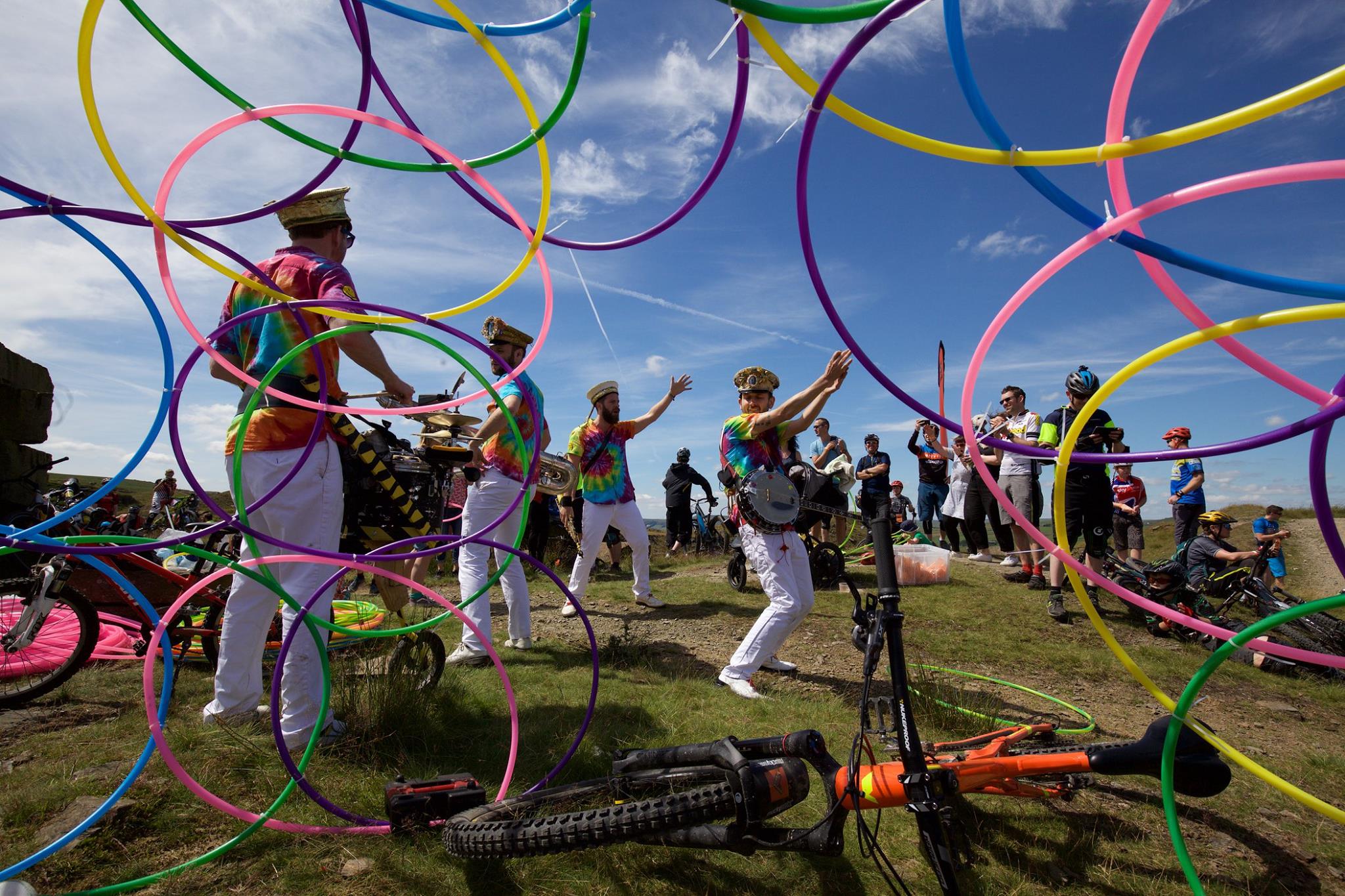
There are also some expenses that become unavoidable in certain formats of event. You couldn’t run a DH race responsibly without plenty of first aiders and marshals. A Wilko’s first aid kit under the sign-on desk and a dog in a hi-viz jacket aren’t going to cut the mustard.
There’s another reason why some events are expensive and some are cheap: the cheap ones rely heavily on volunteers to make them happen. Once you start paying staff, the costs go up. Great if you’ve got a willing army of friends or clubmates who are prepared to selflessly give up a weekend’s riding to stand in the rain on a hillside, but what happens when everyone’s washing their hair?
Ask if you can enter for the same price on the day
If an event isn’t a guaranteed sell out, inevitably there are a lot of compulsive weather forecast checkers who will refuse to enter until the very last minute. This makes life difficult for the poor organiser, who has committed to run the thing no matter what. An event’s suppliers and staff aren’t going to graciously decline payment if the weather’s a bit minging – why should you get to withhold your entry fee because you’re papping your trolleys at the thought of a bit of rain? If race planners ask a higher price for entry on the day, it isn’t because their enormous bath of banknotes needs topping up. They’re just trying to get you to make a fraction of the financial and time commitment they have.
Predict a meteorological apocalypse
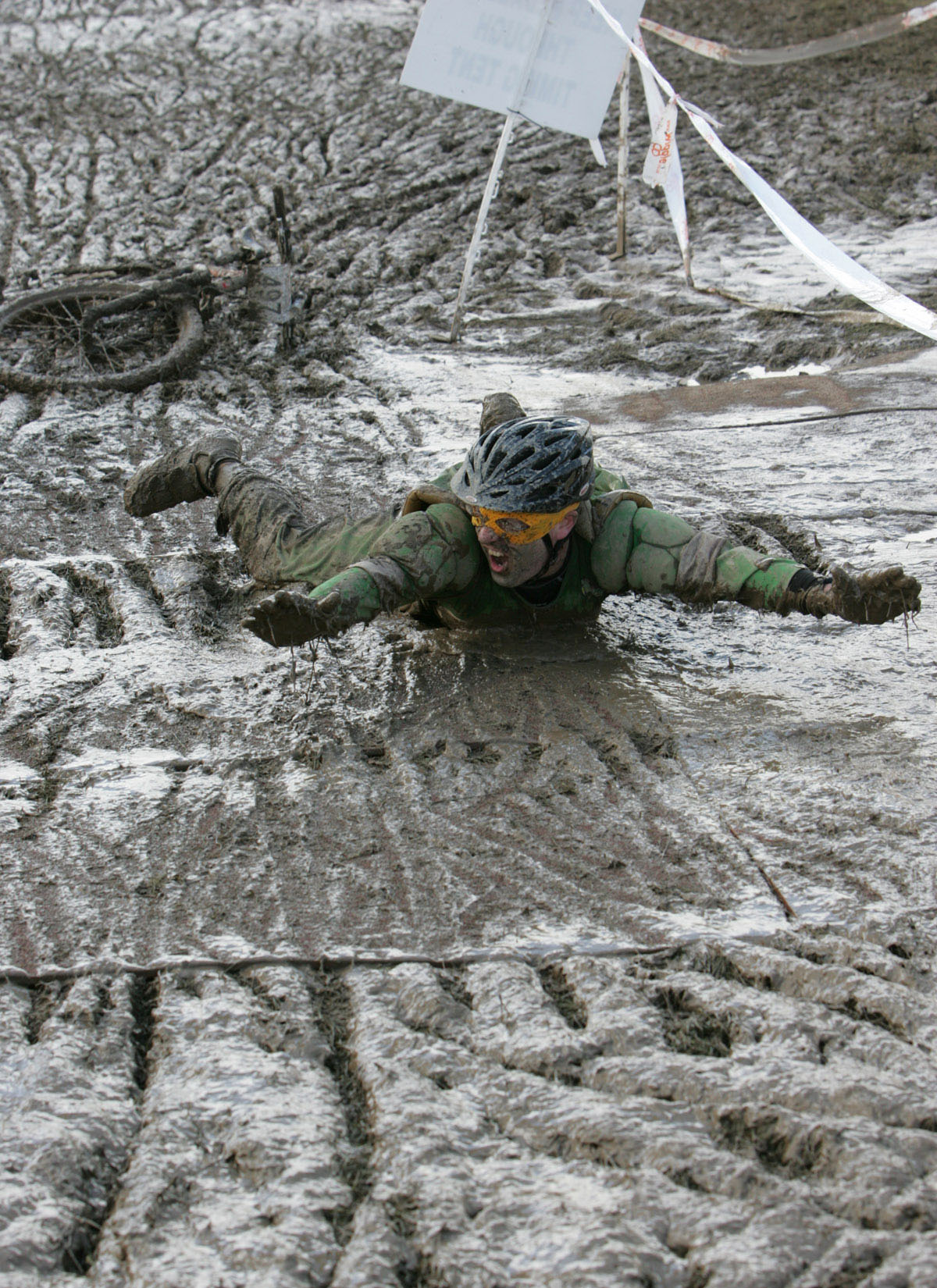
While we’re the subject of weather forecasts, a personal bugbear is people who screenshot the two-week weather forecast in advance of an event, with a caption like “Time to dig out the mud tyres!” Long range weather forecasts are about as accurate as Mystic Meg’s lottery predictions, and rather than being helpful in any practical sense, all they achieve is to get everyone thinking about the possibility of a horrible slopfest, and put a few of them off entering. Put a sock in it, Cassandra.
Draw attention to a date clash
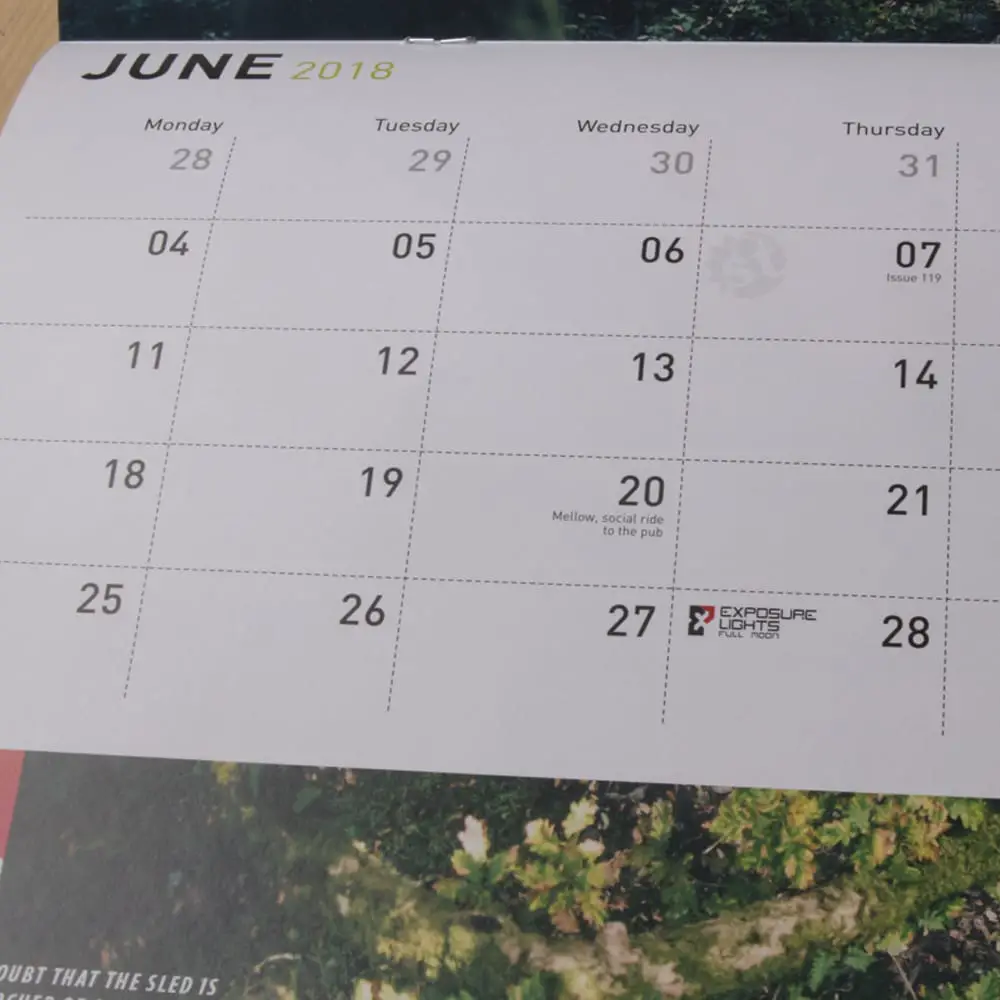
Nothing gets an event organiser reaching for the “post delete” button like some smartarse making reference to a similar event that takes place on the same day. Event planners aren’t daft – they check calendars and try not to step on toes, but the fact is that there are only so many weekends in a year. Until we stop having seasons, or the Pope adds some extra days to the calendar just for cycling events, the odd clash is going to be inevitable. By the time promotion of an event starts, key decisions like the date have already been made, and all you’re going to do with your helpful comment is make people annoyed.
Miss the rider briefing
So you know there’s going to be a briefing before the race, but you’ve got more important things to do. Like unpack the car, or have an extra bacon roll, or do that last-minute tyre change that you could have done the night before, if you weren’t slumped on the sofa like a Netflix-binging walrus. After all, races are all the same and you’re terribly clever, possibly even slightly clairvoyant. It’s not like the organisers use briefings to deliver important last-minute info that could stop you getting into all kinds of misery. Is it?
Diss the venue
Why can’t all mountain bike events be held at venues which have great singletrack on tap, hold up well in all weathers, have enough room for camping and an event village, running water and electricity, and aren’t more than a 3-hour drive from where you live? The answer, dear reader, is that there simply aren’t enough venues like this anywhere. As a little experiment, you could pretend to be an event organiser. Circle all the places near you that you think could host a mountain bike event. Cross off all the ones that don’t have basic facilities like a car park. Then call the owners and ask if they’ll let you use it for a few quid. Try doing this for a few hours, and if your head hasn’t touched your hands or thwacked on your desk by the end, there’s a bright future for you in an extremely low paid industry.
Cuss the course
We’ve all heard variants of the following complaint: the course wasn’t technical enough, so it gave an unfair advantage to all the pluck-legged roadies. Sorry sunshine, but there are plenty of people out there who are both fit and scarily adept at chucking themselves down steep rocky stuff, and if you want to win races, you can’t just be the latter.
Such complaints also ignore the fact that event courses are sometimes – shock, horror – made deliberately easy, because organisers want to provide riders with a challenge, not a near death experience. For a longer event, like a 24 hour race, the course designers will have to factor in things like fatigue, or the competitors riding in the dark. You might think, from the cosy vantage point of your keyboard, that you’d be able to ride continuously for 24 hours and still be at the height of your technical capabilities, but the reality says otherwise.
“I got stuck behind someone slow…”
The other common moan about races is being held up by people slower than you on a fun bit. But before you start with the yelling, bear in mind that the person in front of you might be racing in a completely different category. For example, a solo rider might have done four times many laps as you. A novice rider might be racing for first or second in his or her category. So don’t expect them to stuff themselves into the undergrowth just so you can continue unimpeded to mid-pack mediocrity.
When loads of people are riding simultaneously, a bit of bottlenecking is inevitable. It’s the price you pay for camaraderie, atmosphere and having other guys and girls race against. Savvy event organisers, like the people behind the wonderful Dyfi Enduro, deliberately throw in a massive climb at the start to thin the herd. If you get stuck in the queue for the singletrack, it’s not their fault – it’s your flabby little legs and the ten pints you drank the night before in the beer tent.
Slink off mid-event
This applies more to marathon-style events than circuit races, but if you decide to pack it in mid way through, for crying out loud, please tell someone in authority. No event organiser wants to find a frozen corpse when they’re out taking down the signs the next day, and if you exit sotto voce, chances are they’ll spend as long as it takes looking for you. Which could be difficult if you’re speeding homewards on the motorway. There’s almost certainly a number you can call, they gave it out at the rider briefing… oh.
Demand free photos
Event photographers are some of the unsung heroes of the mountain bike scene, lying in a ditch getting bitten by midges for hours at a time, taking the same photo again and again, then sorting and numbering thousands of pictures, all so some tight-fisted git can upload a stolen watermarked picture of themselves with one wheel off the ground to an indifferent audience on Facebook.
No wonder so many of them do it for a bit, then decide it makes more financial sense to flog their camera and gear on eBay.
And speaking of sorting and numbering photos, it’s amazing how many riders think that this happens instantly, in camera, and that 24 hours is a ridiculous amount of time to wait for event pictures. If there were any justice, these people would be forced to take their own photos on a disposable film camera, using a selfie stick made from overcooked spaghetti, in some third circle of event photography hell.
Ultimately, bike events are like that other lightning rod for opprobrium, the local bike shop. There aren’t many out there that are perfect in every way, but we need to support them. And if you don’t like what’s out there, you could always try organising your own. Just think, in a couple of years you could be writing the sequel to this article…
So, what do you think of Antony’s article? Do you agree? Are there are any other annoying aspects of event management that he’s missed? Or perhaps you’re a race organiser yourself and you’ve experienced your own fair share of grief pre/during/post your big event? Let us know what you think in the comments section below!









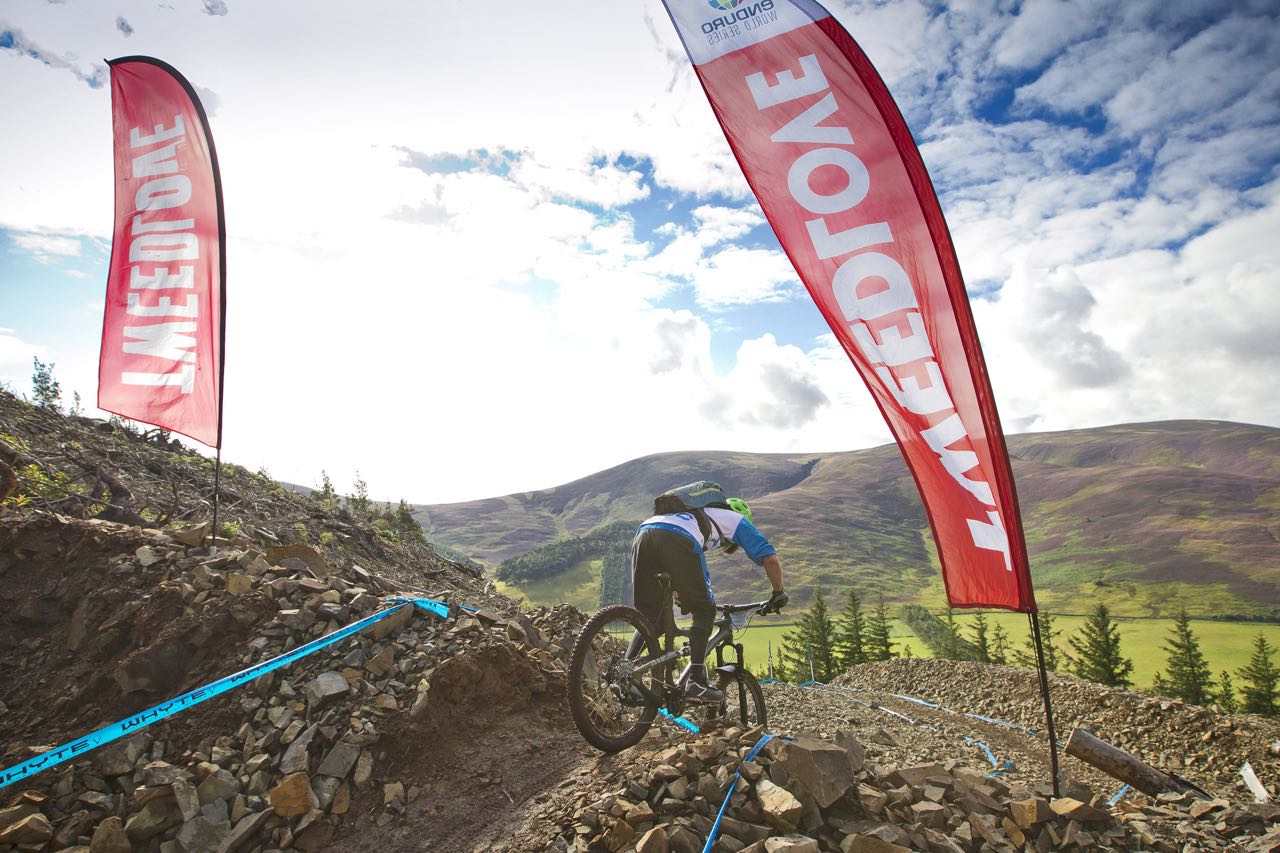
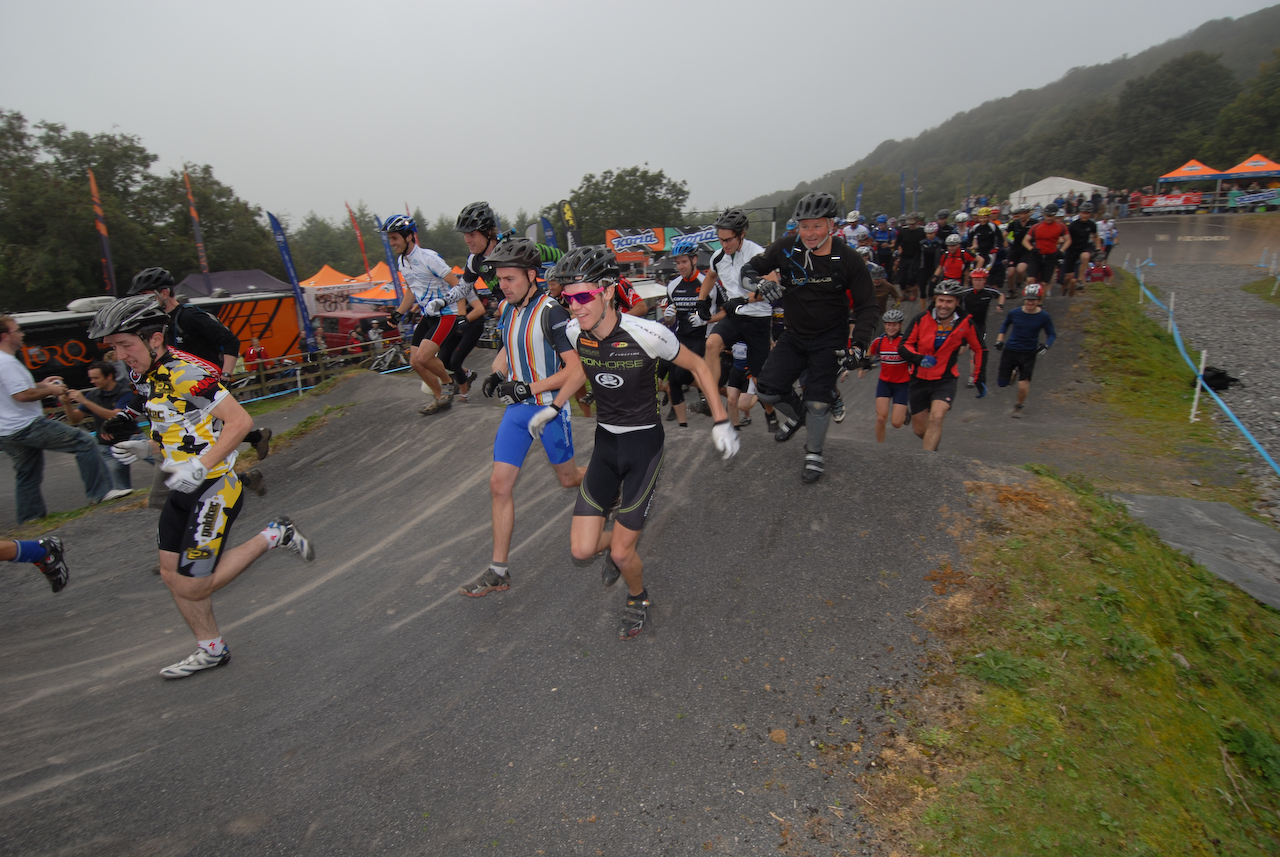


Stever, I honestly thought there wasn’t much I could add to this article, then you lay a whole part 2 on us. Bravo.
Yes, spot on. On the cost issue, quite frankly I don’t know how MTB event organisers do it. Road events cost **much** more. Everything else – yeah, I enter events to have fun, which I do (even at the Passchendaele-without-the-machine-guns events, at least in retrospect) so why can’t people who don’t enjoy them just stay away? It’s a free(ish) country…
Mr Agreeable – happy to help. I merely stand on the shoulders of giants 😉